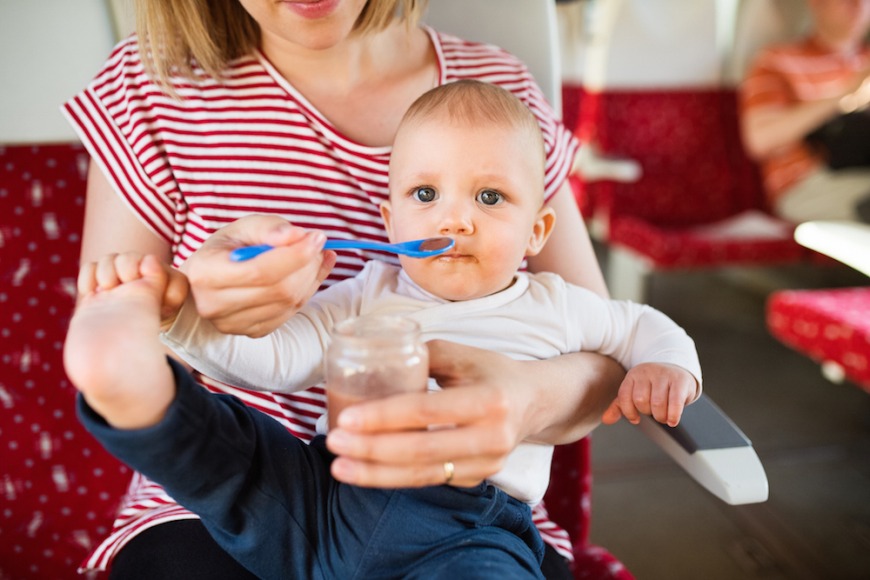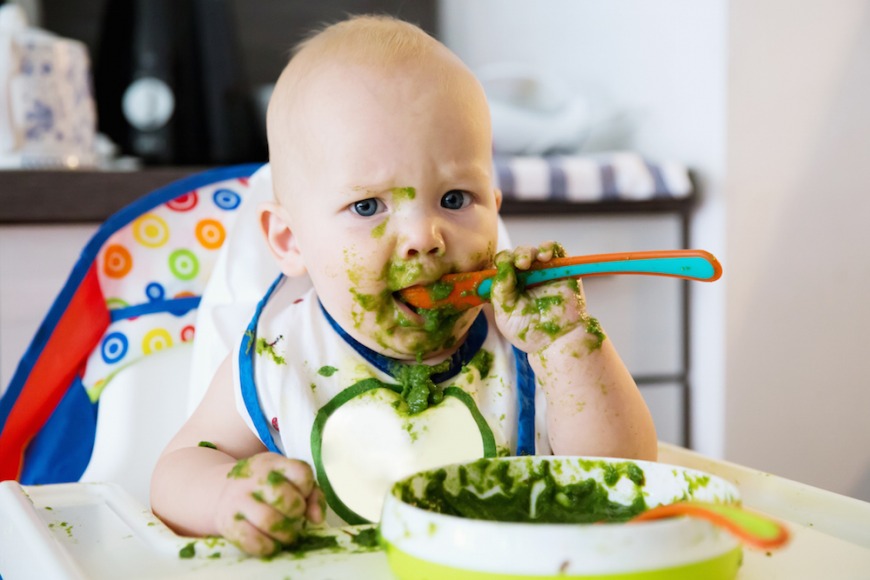About to Start Weaning? 10 Expert Tips To Help Parents Navigate The Switch To Solid Foods
TV’s Dr Pixie McKenna shares a guide for handling the weaning process – and reassures that it’s not ‘one size fits all’
3 March 2019

Al Credits: PA
Getting your baby onto solid foods can be an exciting step – but it may be hard work too, and knowing when the time’s right to make the switch can be tricky.
The UK's NHS’s Start4Life (nhs.uk/start4life), which recently launched a new weaning hub full of NHS-backed advice and healthy recipes to help parents through the process, says official advice is that most babies shouldn’t be weaned until they’re six months old. This is about the age when their bodies are better able to cope with solid foods, they’re more able to feed themselves, and better at chewing, swallowing and moving food around their mouth. Still, it’s never really ‘one size fits all’ with babies.
Meanwhile, TV’s Dr Pixie McKenna, a GP and author of several books on weaning and child development, has teamed up with Waterwipes with Soapberry (waterwipes.com) and created a guide for parents approaching the weaning phase.
Here are 10 things parents should keep in mind when it comes to weaning your baby onto solid foods…
1. There’s No Magic Age To Start
Babies will generally be ready to start weaning at six months old, although McKenna points out: “All babies develop at different stages, and what might be right for some won’t be for others.” Signs to indicate that a baby’s ready for solid foods might include sitting up with support and holding their head steady, putting toys and other objects in their mouth, and watching with interest when others are eating.
2. Try Different Types Of Weaning

Be patient and figure out what’s best for your baby (Thinkstock/PA)
There’s no ‘one size fits all’ when it comes to weaning – what works for one baby might not work for another, says McKenna. There are two main types of weaning methods: Spoon-fed weaning, where babies learn to spoon feed first, and baby-led weaning, where babies skip the smooth food phase and learn to chew from the beginning.
McKenna says baby-led weaning is a good way for babies to learn their own feeding skills, as well as developing motor control, enabling them to experience a greater variety of foods. However, she says spoon-fed weaning has benefits too, as you know exactly how much and what baby’s eating, baby can get food quicker, and it usually causes less mess.
3. Babies’ Don’t Need ‘Baby Food’
“Before you rush out and buy 101 jars of baby food, there are easier and better ways to introduce infants to solids,” says McKenna. Babies should be exposed to lots of variety and most can start with any pureed single-ingredient food with no added salt or sugar. Foods like butternut squash, carrot or sweet potato are good choices, as they provide a rich source of vitamin A, which is important for a baby’s growth. Adding cheese to vegetable purées is a great way to add protein, and well-cooked scrambled eggs make a good first breakfast too.
6. Follow Baby’s Lead
McKenna says it’s normal for babies to put up some resistance when they first try solid food. “If your baby doesn’t seem interested after a couple of attempts, try again later – it may be they’re just not very hungry at the moment. Patience is key, so go at your baby’s pace.” If you’re concerned about your baby’s appetite, seek advice from your GP.
7. It’s Fine To Abandon The Schedule
Having a routine can help babies when they start weaning, but it shouldn’t be concrete, stresses McKenna. A schedule can be helpful, but try not to worry too much if you have to deviate from it. “The most important thing is to make sure you and your baby are relaxed and are enjoying the weaning process – go with the flow,” she advises.
8. Weaning Won’t Help Baby Sleep Through
“Sorry mums and dads, there’s no proof weaning helps babies sleep through the night,” stresses McKenna. Some babies sleep right through from about six to eight weeks, while others take much longer. “Again, all babies are different and some parents are blessed with sound sleepers, while others are not,” says McKenna.
9. Be Prepared For A Mess

Getting messy is part of exploring this exciting new world! (Thinkstock/PA)
Weaning a baby can be very messy, and McKenna says: “Letting your baby explore, handle and taste foods is exciting but it comes with the added pressure of keeping them and your house clean.”
10. It Won’t Happen Overnight
Remember, weaning is a gradual process and won’t happen instantly. “Some babies require several weeks to get used to the change, so be patient,” McKenna reassures.

























.png?itok=SvZPqMHH)




.png?itok=uB2ieOR7)












